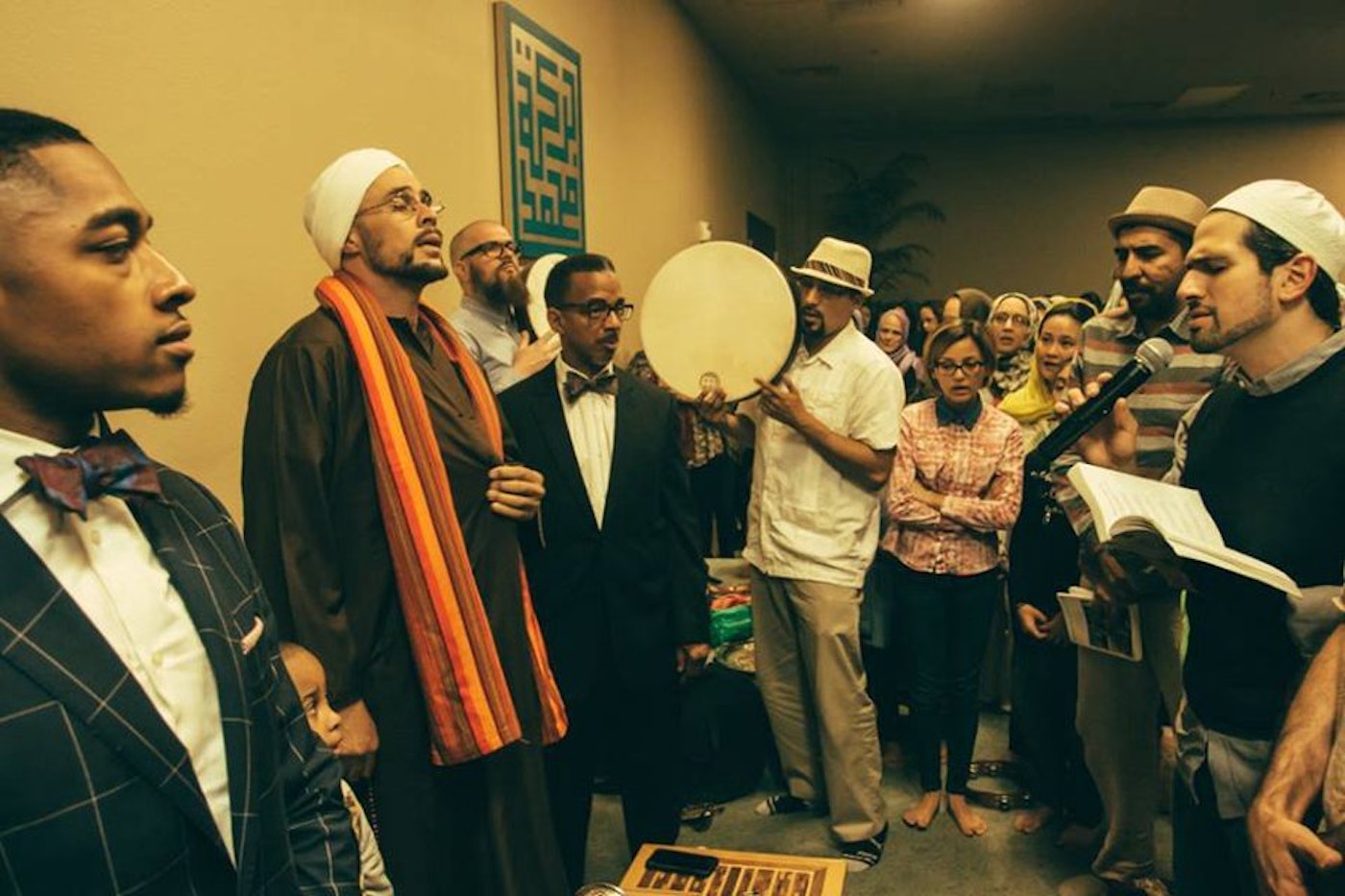
This piece has been republished with permission by Sana Saeed, it was originally published on Medium.
Writers Disclaimer: I am not someone who experienced any abuse; that is not what this piece will be discussing. The nature of the allegations is briefly discussed, but the primary purpose of this essay is to explore what’s at stake, the need for actual accountability and how we take the good and separate it from the bad that leaves us in pain. My intention is to move this conversation forward and demand a change of culture within our institutions and among ourselves.
Me and the Ustadh
In early 2015, I found myself in a dark place, smothered in isolation and uncertainty. Less than a year prior, I had written an exposé about members of our community undertaking unjust and immoral actions. I had expected a natural backlash, but I never expected the accusations. I was accused of spreading fitna, of being someone with low character; that I was the kind of person who destroyed the community versus the kind who built it. I lost friends and the support I did have, was coming from others who had also been castigated. I felt utterly alone and swimming in a sea of doubt about my actions: were they right? Was I spreading fitna? Was I wrong to do what I did?
I wasn’t, but the heaviness of uncertainty is difficult to ignore.
Around this time, I went to my first Ta’leef in the City event in San Francisco. I had moved to the city just months prior and found it to be a spiritually barren landscape. I was well-acquainted with Ta’leef despite never having gone to an event; many of my friends moved in that circle and Usama Canon’s reputation and the gravitas preceded his presence.
Ta’leef in the City was meant to bring Fremont’s Ta’leef vibes and space to people in San Francisco, since those of us who lived in the City looked at anything outside of it as necessitating a plane ticket. For some Muslims who attended, Ta’leef was their only engagement with Islam that week and so as a space and event, it mattered.
And it was a good vibe, that first event. Canon was charismatic, funny and knowledgeable; it was hard not to be attracted to who he was.
As the event began to wind down, I approached him; I just needed some spiritual guidance and Canon had shown himself as accessible and open. To a young Muslim woman, who had until that point never seen Shayukh and men of knowledge as accessible and welcoming, he stood in stark contrast.
He saw me walking towards him and took steps towards me to meet me halfway. I gave my salaams and started with “My name is Sana Saeed — ” before he interrupted me.
“I know who you are and I’m a fan. You’re doing good and necessary work for justice and accountability. Please keep doing it.”
My heart swelled and my throat tightened. In that moment, I was healed. It’s all it took: for someone in a position like Usama Canon, someone I had just met, to tell me ‘hey, keep doing what you’re doing’.
And for what he unknowingly did in that moment, I held a profound love for him for years. And as I continued to frequent Ta’leef, Canon always welcomed and shared with me — he made me feel included and respected; he would give me a literal seat at the table he sat.
When I heard of his ailment in 2017, I sat at my desk at work and cried and prayed for him. I prayed for him every day.
When I saw him in the condition of his ailment, for the first time, at Ta’leef, I had to sit down, breathe and keep myself from crying.
I want to make it clear here that I’m not the person who thinks of shayukh as ‘awliya’ and ‘my shaykh’ or even that we should stand when a Shaykh enters the room (this will become relevant later, so bear with me). My love and respect for Canon wasn’t some neo-Sufi adoration that kept me from seeing red flags in the organization (and there were many). Rather, my love and respect for him was rooted in something just plainly human.
This whole story isn’t easy for me to share because it does publicize a vulnerability I don’t see the need or have the desire to share, really. But I’m sharing it because I want you to know where I’m coming from, what Usama Canon meant to a layperson like me and how I can still hold onto the good I experienced with him while, now, rejecting who he apparently really was and acknowledging the great harm he allegedly caused.
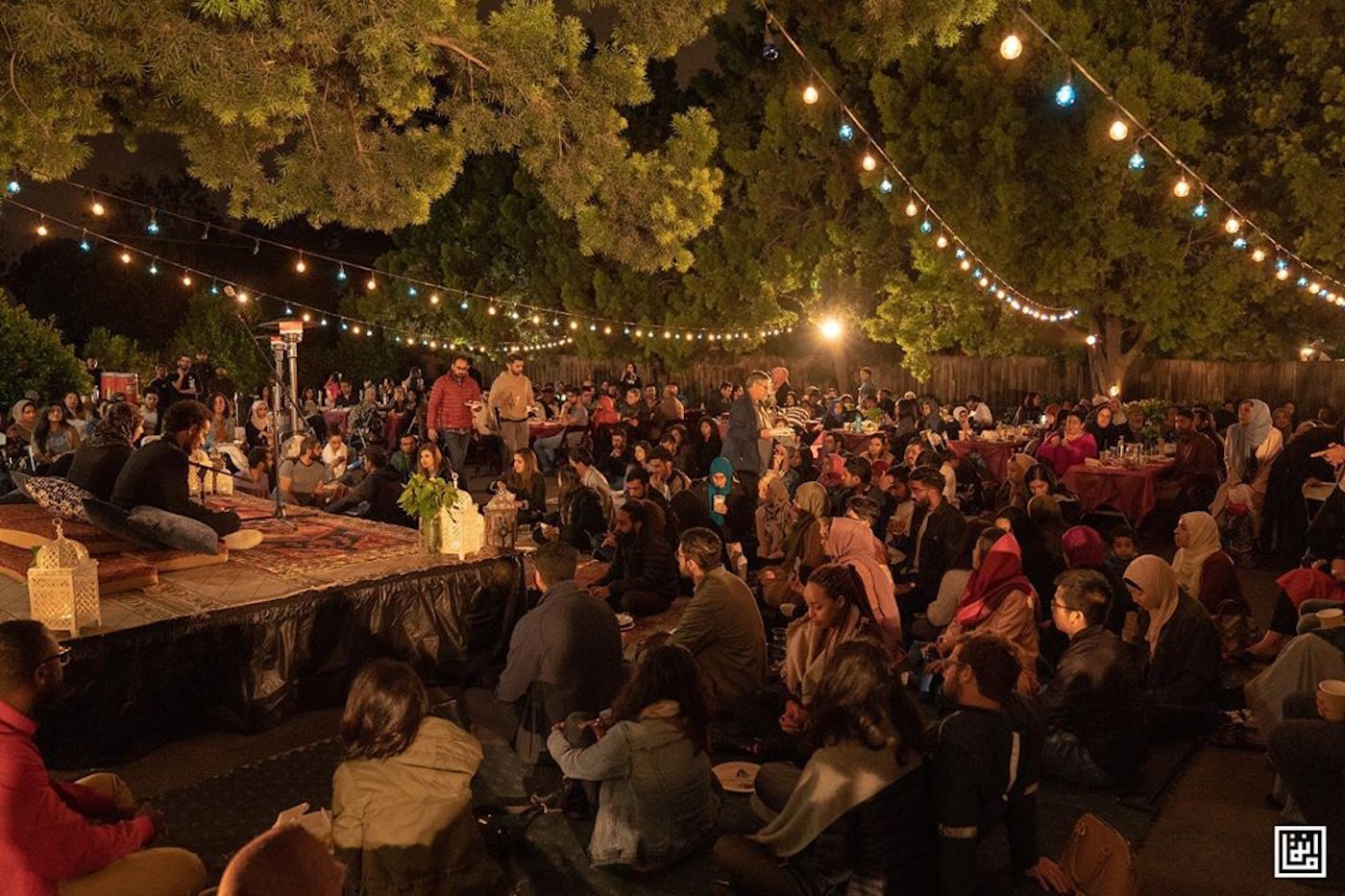
The Ustadh Falls
On November 6th, Ta’leef Collective released a vague but shocking statement. According to the Board, they had conducted an investigation into allegations of professional misconduct by Usama Canon and found he had breached trust and thus were severing any and all relations with him. They also mentioned, in a manner so cryptic that it left a lot to the imagination, that some ‘recent’ allegations, worse in nature, had been brought forward. While no specific allegation was highlighted, Canon’s breach of his family trust was mentioned — which led people into a fit of speculation about what it could be.
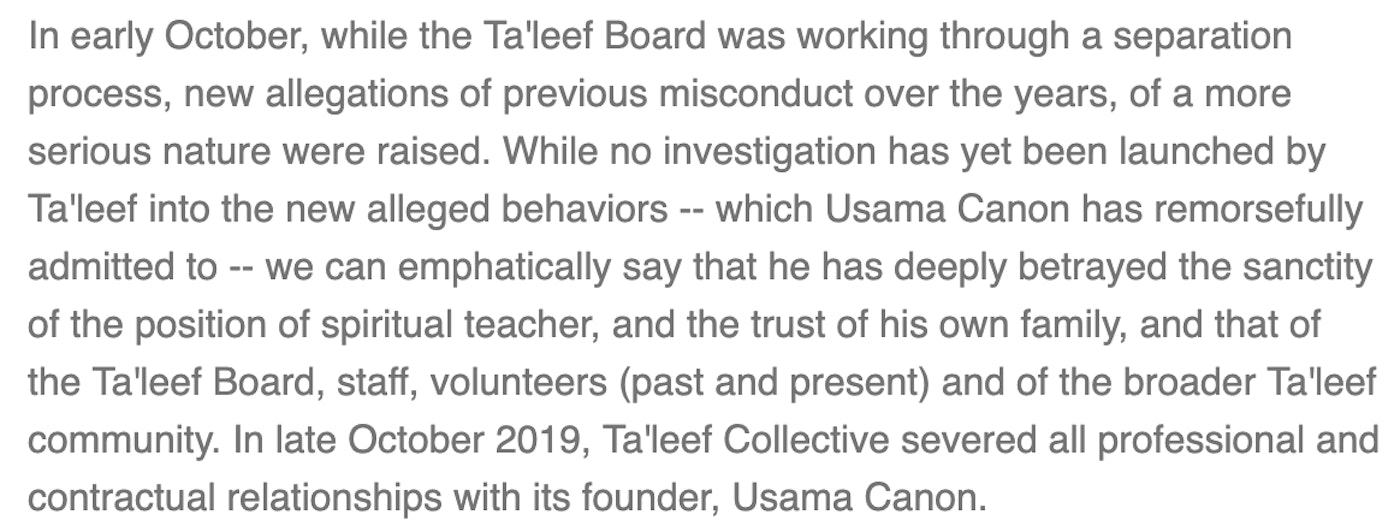


The comments under the Ta’leef statement on Facebook ricocheted between condemnations of Ta’leef for doing this “to a dying man” and for making a big deal out of what seemed like he just “yelled at people” to demands, particularly from Muslim women, for further transparency and honesty, alleging that Ta’leef’s statement wasn’t actually honestly engaging with what had been alleged and how long they had known about the misconduct allegations.
Now, what are the allegations?
I know them, a whole slew of people across the country know them. People in the Bay know the allegations. A lot of us had heard murmurs of some of the allegations — beyond professional misconduct — some time ago. A lot of people around him knew the allegations well. I don’t find the need to go into detail about them, but I do believe in transparency in accountability. If you’re going to hold a public person publicly accountable then publicly acknowledge the nature of their slights against the community they claimed to have served. There is no accountability — public or private — without an acknowledgment of the wrong-doing. And the particular wrong-doings that Canon is accused of don’t solely fall on him, either and hence a public acknowledgment can allow for greater accountability, which I will get to in a bit.
The allegations fall into the following categories: financial abuse, physical abuse and secret and temporary marriages. Regarding the latter, I had one young woman reach out to me and share her story and experience. Out of respect and in compliance with her request, I will not go into detail about what she experienced.
I also want to quickly take this moment to say that we need to also re-consider the sort of voyeurism we crave and mistake as a need to see or hear ‘evidence’, in the public. For people who’ve gone through traumatic experiences, revisiting trauma in a public court of opinion worsens their healing and well-being. Women who’ve been in compromising relationships also hold a very different status in our community (and society in general) given that they are simply not treated with the same empathy or caution that men will be given.
While I won’t share the details of all the allegations, they are devastating. For me, personally, despite hearing some allegations previously, to hear the whole scope was a lot. My heart hurt. My heart still hurts. Not because I saw Canon as a saintly figure incapable of error or even as a spiritual guide but because how could someone be someone so entirely antithetical to who we knew? Or, who we thought we knew.
Learning the breadth of someone’s humanity — the sort of humanity that is flawed — can be as painful as it is necessary.
Allah knows best.
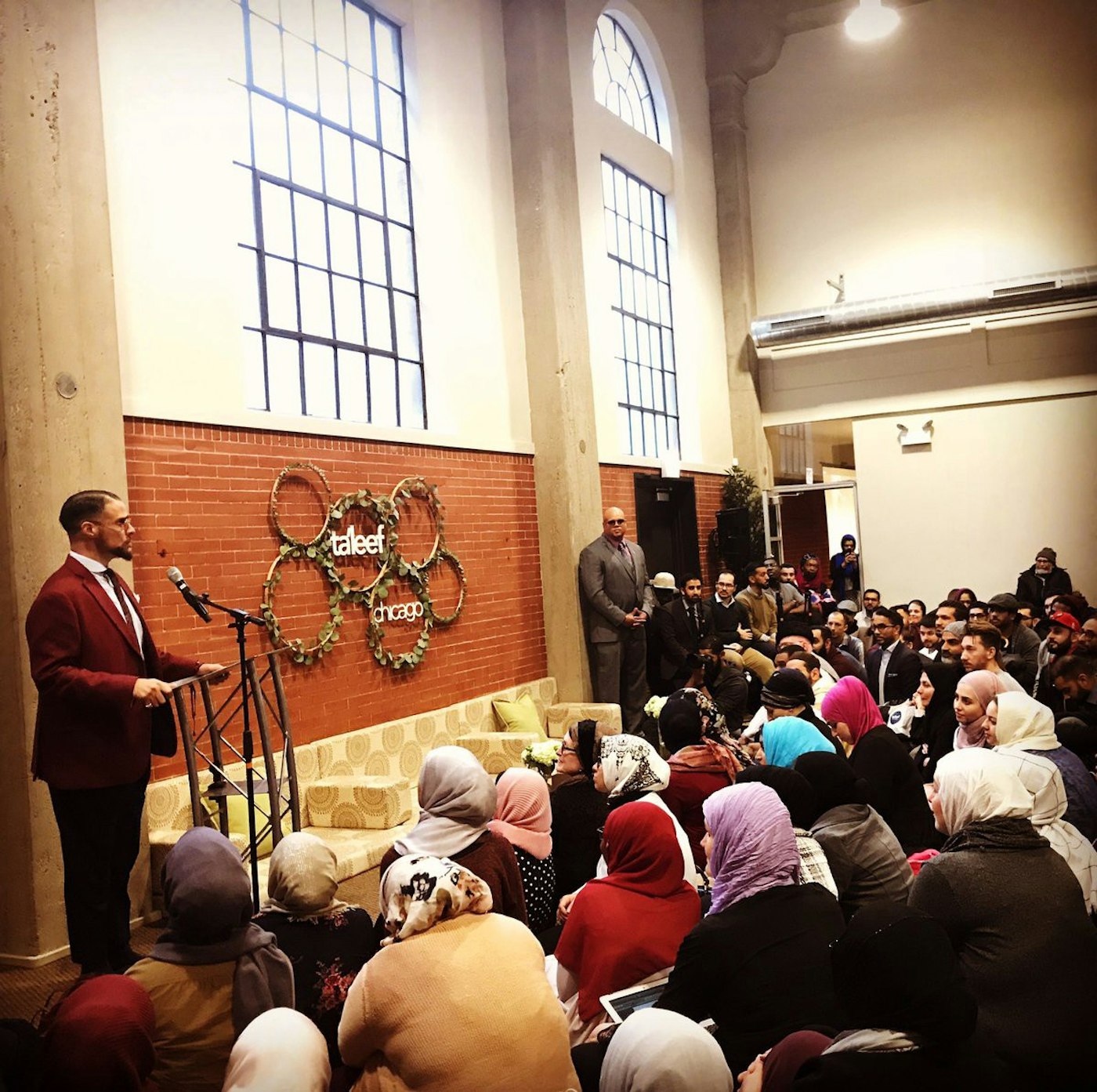
The Women We Ignore, The Women We Blame
When I first read the Ta’leef statement, my immediate reaction following a sigh of a weird knowing relief (that it was out) was immediate sorrow for Canon. Here, I thought, is the end of an already dying man who built an institution, community and a legacy simply constructed on what I think is still a powerful axiom (courtesy Imam Zaid Shakir): Come as you are, to Islam as it is.
But my sorrow quickly turned to anger and devastation as I learned details of the allegations; by the end, I could only wish that Allah swt could have the mercy on him that I couldn’t bear to bring in myself anymore.
“Why do this to a dying man?!” was text that began to creep in every corner of whatsapp groups, Facebook and Twitter threads.
And while I initially thought the same, for a brief moment, I realized it was because I didn’t consider those who suffered the consequences of his alleged wrongdoings and abuse. I didn’t consider them. I didn’t think about, even though I know from personal experience, the need to have an injustice against you publicly acknowledged by the person who has done it.
A person’s health status shouldn’t not mean the rest of us who sit on the outside get to determine what justice for the abused and the impacted looks like. Sure, it’s not convenient for him, but it’s not convenient for any woman or former staff or his family either. It wasn’t convenient for them when they had the wrongs committed against them that were committed.
Where is the sympathy for those who’ve been unjustly, abusively treated? Where is enjoining the good and forbidding the bad, now? Danish Qasim, founder of In Shaykh’s Clothing, wrote at length about how and why the death of an abuser doesn’t absolve an abuser.
Where is our sympathy for what this means for members of our community who look up to men of knowledge as, well, men of knowledge and men inknowledge.
In recent years, there has been a growing reactionary conversation around how so many young American Muslim women are leaving an Orthodox Islam (a poor term that will make any academic reading this cringe) for an Islam that, they will argue, looks less and less like Islam but still calls itself that. It’s the Islam of Feminism; the Islam of modernity. The Islam of Liberalism. They’re accused of simply spreading fitna and being ignorant of the faith. And yes, a part of it is the result of living in a liberal modern state which has made ‘Muslim’ into a racial category that we, ourselves, have adopted without challenge and so theology and fiqh become secondary to what it means to be existing in a body that’s been criminalized. But there is no additional consideration in these conversations that maybe it’s also because some, maybe many, women don’t feel safe in our institutions.
Women talk. Women know before the world knows. We know who’s doing what and to who. We hear the whispers and concerns. We counsel one another. We warn one another. We create the safety for one another that we need to live in this world.
Yes, not every Shaykh, not every Imam is lecherous man who uses the Deen and his authority to abuse and exploit women (and even men) — but it’s hard when these stories keep popping up and we also see the extent to which people, who aren’t even attached to these people and their institutions, will go to defend and protect them. How are you supposed to feel, as a Muslimah? How are you supposed to keep reconciling what you experience and see, time and time again, with your faith when the men who teach you the faith keep failing you?
And yes, sometimes — if not often — these relationships are consensual, but the presence of consent doesn’t negate the presence of exploitation. We shouldn’t ignore exploitative, harmful relationships that are being undertaken by powerful men ‘of knowledge’ in our community by virtue of their position, justified by the misuse and abuse of the Deen. We have to have more respect for our tradition than that; we have to have more respect for ourselves than that.
And this isn’t even about deification or celebrityhood — an issue we need to address — but rather about what trust means between a person of knowledge and a seeker. Trusting someone doesn’t necessitate seeing them as a celebrity or deifying them.
Same goes for institutions.
I don’t walk into a masjid or Islamic institution expecting my vision of Islam be respected and upheld — but I do walk into a masjid or an Islamic institution expecting that Islam and the example of the Prophet (SAW) are protected, respected and upheld. That is a basic, pre-existing trust and once that trust is eroded — what do we have left?
Following the exposure of the Catholic Church’s child sexual abuse, Catholics in the U.S began falling away from the Church. In 2017, 49% of Catholics had a high or very opinion of the ethical standing and moral character of clergy members. By the end of 2018, that number had fallen to 31%.
While American Muslims, especially Sunnis, do not have institutional rigidity similar to the Catholic Church — our institutions, especially as they grow, become central in young Muslims’ connections to their faith. And our institutions are more and more built on cults of personality — which leave faith reliant on man, by design, versus on its own legs. So when personalities abuse and fall, institutions begin to fall and we begin to see our own detach themselves from centers that should be there to create a community space and a spiritual haven.
Women, who hold the most vulnerable position in any community, stand to lose the most.
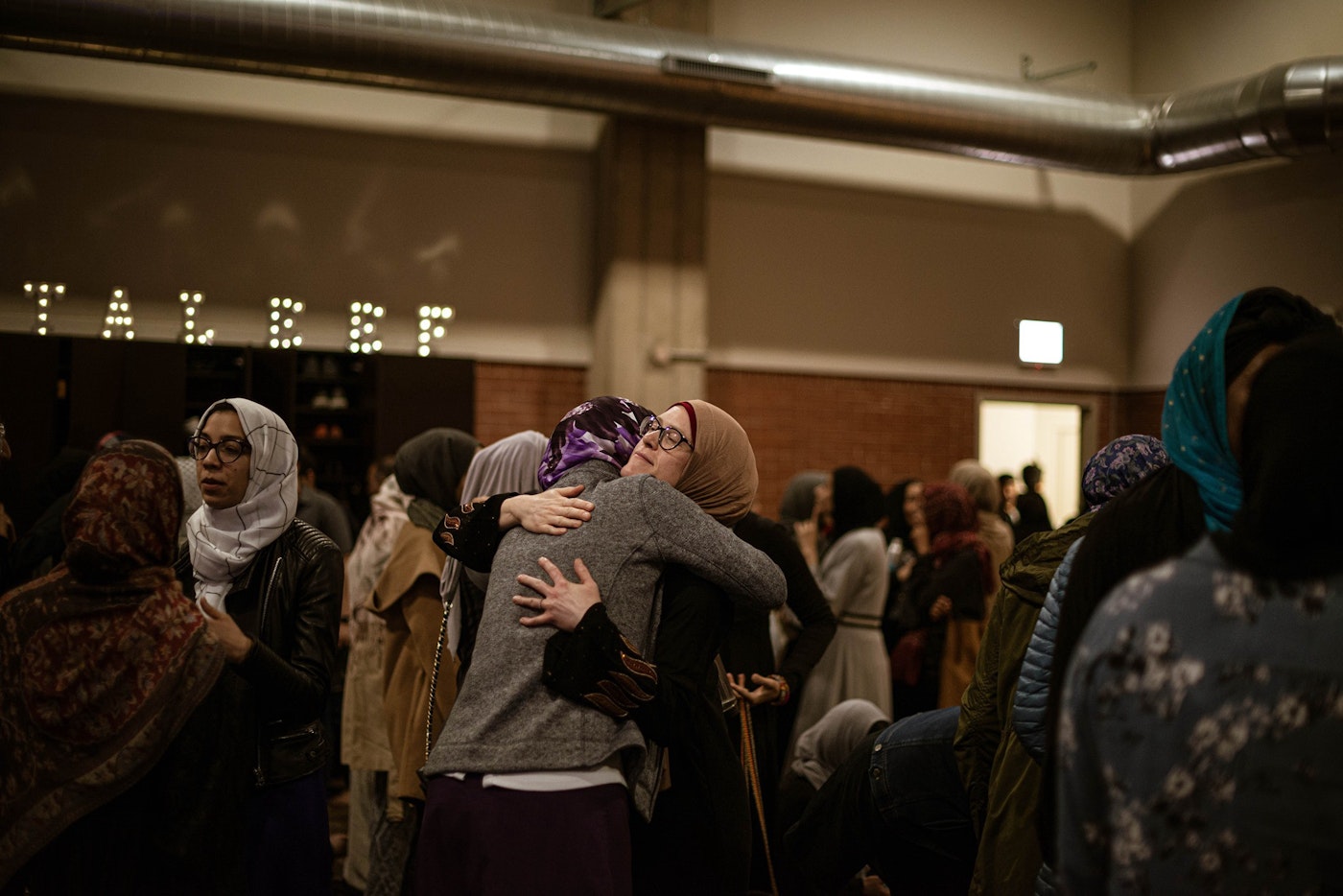
Accountability and the Untouchable Scholar
Ta’leef’s issuance of a statement was lauded — including initially by me — for being open about the fact that there were, in fact, allegations against Ustadh Usama Canon. It is not easy for any organization to do and especially not when it is the founder of your organization and the man who brings the money.
But there are so many questions, as a result of that statement, that now have overtaken any constructive conversation that could be had.
Why did the Ta’leef board choose to release the statement of allegations now? Why are they claiming that certain allegations were only brought to light in early October while many have claimed that they knew well before October of many of the alleged wrong-doings? Who knew? How long did they know? What exactly are the allegations? What actions are being undertaken — aside from severing ties from a sick man who is moving out of the country in a matter of weeks — to acknowledge and rectify the alleged harm that’s been caused?
This upcoming Sunday, they are holding a ‘Healing Circle’ from 2 to 4 pm — healing for whom? From what? Will people who knew about the allegations for sometime be there? Will there be resignations?
If Ta’leef released this statement in a commitment to accountability, then it must hold itself — the Board — accountable publicly and not simply make Canon a scapegoat for deeper endemic issues.
Going beyond Ta’leef, there is a bigger issue that allows abusive practices to not only fester and grow but to be enabled and ignored by those who are in the direct periphery.
In my previous article on here, I wrote about another Shaykh — in particular, I wrote about how his supporters did him and our community a disservice by protecting and enabling him at his worst; that no critique was ever allowed because we had to trust his unseen, unknown wisdom.
It’s easy to chalk this up to celebrity-shaykh culture, but I want us to think beyond that too. It’s not enough to say this is the result of making Shayukh into celebrities and so we need to stop idolizing them as infallible. Shayukh aren’t made near-infallible by us, because we see them as cool and wow so full of knowledge. Over the last twenty years, a Tariqa-type culture has emerged across the U.S. in particular, in which the Shaykh is the center of knowledge, of the institution and thus becomes the center of seeking knowledge. Naturally that makes the Shaykh the center for the seeker. This has coincided with first and second generation Muslim Americans seeking — and prioritizing — relatability in shayukh and imams. And that has shown institutions the power of fundraising through the cult of personality.
So I want us, as individuals and as a community, to think about what it is that we really want from our masajid, from our imams, our shayukh? Because what we have right now is the cultivation of a culture of infallibility that chides any and all attempts at and for accountability and critique. To be told, over and over again, about the wisdom of scholars and how our tradition tells us to respect scholars completely not only ignores how often scholars were challenged (by each other and by others) but how even the first communities of our faith held one another and themselves accountable.The Rashidun (RA) didn’t rule as rulers — but as servants to their communities.
So, in the mean time as we try to navigate the hurt and confusion, what do we do when the men who brought us good are revealed to have a trail of harm behind them, whatever that harm is?
I shared some of my hurt, last night, with someone I have never met. He said something which has stayed with me all day today:
Ultimately, the teaching is more noble than the teacher, so what you received is more noble than the conduit. And you own what you received from him.
To my sisters, hurt and confused, you own your faith, you own the good you’ve experienced and the knowledge you’ve gained. Our disappointments will never stop, but those disappointments cannot and should not define our Islam and our obedience to God, our love of the Prophet (SAW) and our love for our vast community, flawed and human as it is.
عَلَى اللَّهِ تَوَكَّلْنَا ۚ رَبَّنَا افْتَحْ بَيْنَنَا وَبَيْنَ قَوْمِنَا بِالْحَقِّ وَأَنتَ خَيْرُ ٱلْفَـٰتِحِينَ
“Upon Allah we have relied. Our Lord, decide between us and our people in truth, and You are the best of those who decide.” (Qur’an, 7:89)
If you or anyone you know is experiencing abuse at the hands of a leader or know of unethical practices, please check out FaceTogether which is trying to build a system of accountability for unethical and abusive leadership in the Muslim community: https://facetogether.org/.
What made me cry, while writing this piece, is how Canon told me in our first interaction to keep writing on justice and accountability and today, I wrote about him in the spirit of keeping steadfast to writing about those issues in our community. This was really tough.
— Sana Saeed (@SanaSaeed) November 8, 2019
Sana Saeed
Constantly looking for ja rule to make sense of this all. Writer on unpopular opinions & producer @ajplus. disclaimers.